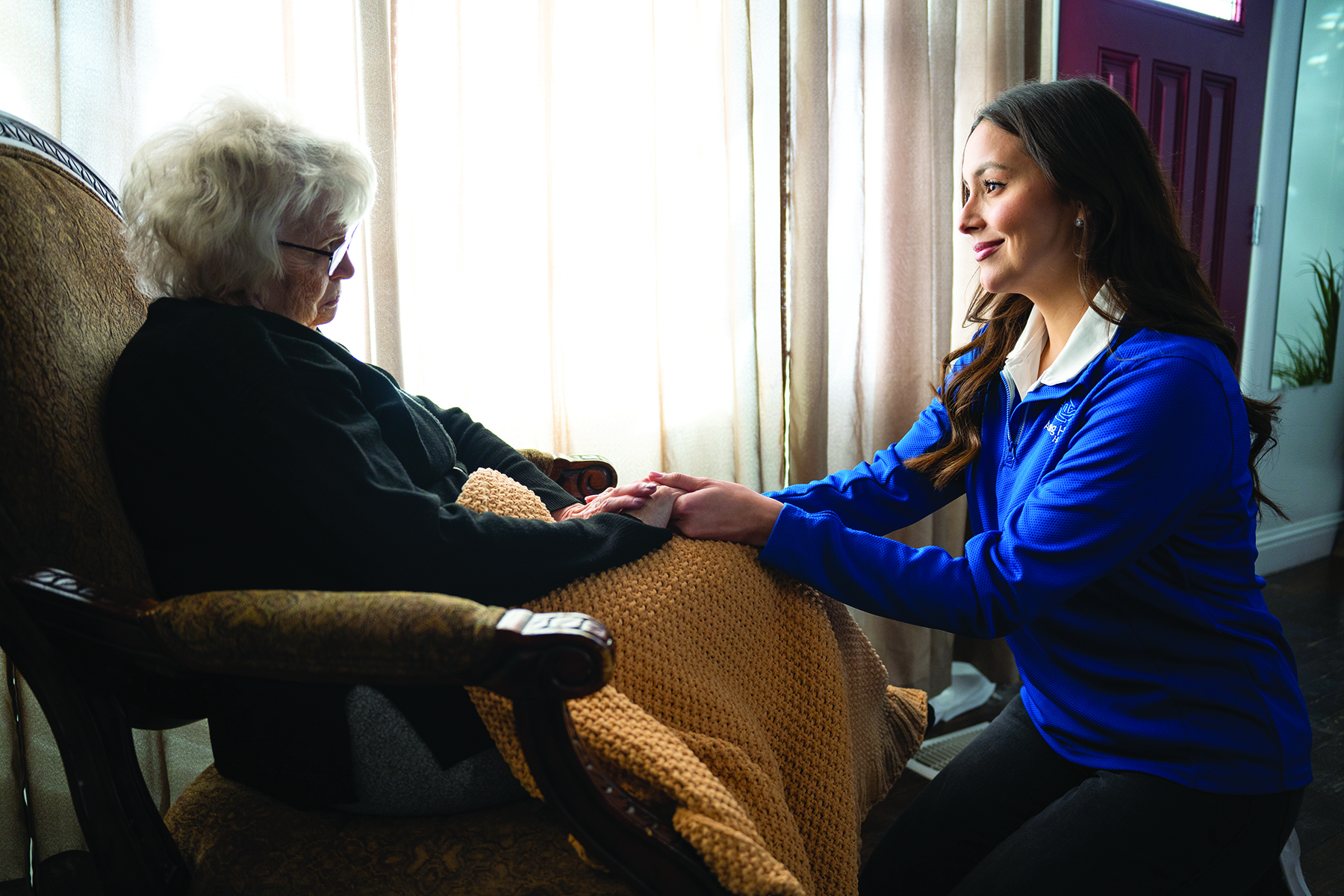

When an elderly parent’s health declines, adult children naturally want to step in and help. But it’s unsurprising when the senior refuses to take the advice of their adult child. A parent who needs but refuses help can be supported in a range of ways, including the nine that follow.
What are common age-related issues?
Aging comes with significant challenges, from physical to cognitive and emotional. Mom’s decreased balance may raise her risk of falls. Cooking over the stove to prepare hot meals is difficult due to a loss of strength and endurance. Arthritis can make even opening a jar impossible.
Cognitive ailments are also common in the elderly population. Over six million Americans live with Alzheimer’s disease. Memory issues can lead to missing important doctors’ appointments, losing the ability to recognize familiar faces and forgetting how to return home from an errand.
Emotional challenges are inevitable. As people age, loved ones pass away, leaving seniors with a sense of loss. Homebound individuals and those with mobility issues are unable to leave the home to socialize in their community, leading to depression, isolation, and a pattern of self-neglect.
How do adult children support a parent who refuses help?
When any of the abovementioned age-related issues arise, adult children may offer to help their aging parent. But stubbornness can interfere with their acceptance of support. When the signs are clear that an elderly parent needs assistance with daily tasks, start the conversations early.
1. Discuss future care needs
The best time to discuss future care is when the aging parent is thriving and independent. Initiate conversations about their wishes in the event they experience a stroke, receive a dementia diagnosis, or are affected by another serious medical problem. Plan for unexpected situations together.
2. Remain persistent
Several discussions may be needed to convince a parent to accept extra help without triggering their fear of losing control. If the senior suffers from dementia or other cognitive ailment, they will have difficulty processing all the information from a single conversation.
3. Value their autonomy
While an elderly parent may clearly need help with certain everyday tasks, adult children can find chores they perform independently. Recognize what they can do and suggest help with the activities that are better done safely with assistance. Keep in mind the senior is in control of their care options.
4. Prioritize issues
Safety is a concern when a parent fails to turn off the stove, for example. Prioritize the most pressing issues first. Discuss whether a relative or a professional caregiver can prepare healthy meals. Open-ended questions prompt seniors to reflect and assess whether a change is needed.
5. Bring in family members
Caregiving is not a one-person job; rather, it requires the cooperation of multiple individuals. A parent who still needs convincing may be open to considering what respected relatives have to say. Schedule a family meeting to discuss the senior’s need for help at home.
6. Introduce a third party
An objective viewpoint from a physician may change a parent’s mind. Broach the medical professional with concerns about the senior’s welfare. When changes are necessary to preserve their safety and well-being, an aging parent is more likely to heed and accept a doctor’s advice.
Similarly, adult children may opt to bring in a social worker, a geriatric care manager, or an esteemed religious figure from the community. Community support reinforces the adult children’s concerns and shows the parent that their well-being and happiness are valued.
7. Lay out the consequences
If Dad insists on continuing to drive despite concerns about safety, adult children can try persuading him to give up the keys by presenting the consequences. The risk of car accidents may sway the senior. Be careful to avoid punitive terms and remind them that their actions affect others.
8. Start care gradually
Making drastic changes to a senior’s routine can cause discomfort and unhappiness. Instead, introduce extra support gradually, such as by picking up groceries or hiring a home care provider twice a week. Slow changes show that the adult child respects their parent’s boundaries and independence.
9. Accept their resistance
Despite needing help in daily life, an elderly parent may still fail to heed advice and refuse help from their adult children. Frustrating as it may be, accept that the parent is an adult and makes their own decisions. Avoid arguing or rejecting their choices and opinions.
Continue to offer help and love to the aging parent. Accept the situation and enjoy time with the parent while communicating help is always available. Gradually, they may see how beneficial it is to receive support at home and change their minds.
Families are urged to bring up the topic of elder care early on. When a senior understands the benefits of compassionate in-home care, they are likely to welcome a professional caregiver into their lives. Assisting Hands Home Care is ideal for older adults aiming to enhance their quality of life.
Professional caregivers from our home care agency deliver exceptional elder care in the comfort of the senior’s home. We support daily activities, including morning and nighttime routines. In between, our professionals are available to help seniors complete a range of tasks comfortably and safely.
Assistance with personal hygiene, healthy meal preparation, grocery shopping, and medication reminders are core responsibilities our caregivers undertake. We provide transportation and escort to local destinations, like the senior center, pharmacy, or doctor’s office. Light housekeeping and fall-risk assessments are included in our non-medical care services.
In addition to personal care, our caregivers provide valuable senior companionship. We play games, join care recipients in hobbies and recreational pursuits, take them on outings and hold pleasant conversations to keep them socially engaged. Our efforts prevent loneliness and isolation.
When your elderly parent recognizes the value of senior home care, choose Assisting Hands Home Care in Westlake, Ohio. We are privileged to serve older adults and help them enjoy dignity and continued independence. Schedule a free in-home consultation and begin dependable elder care today.



